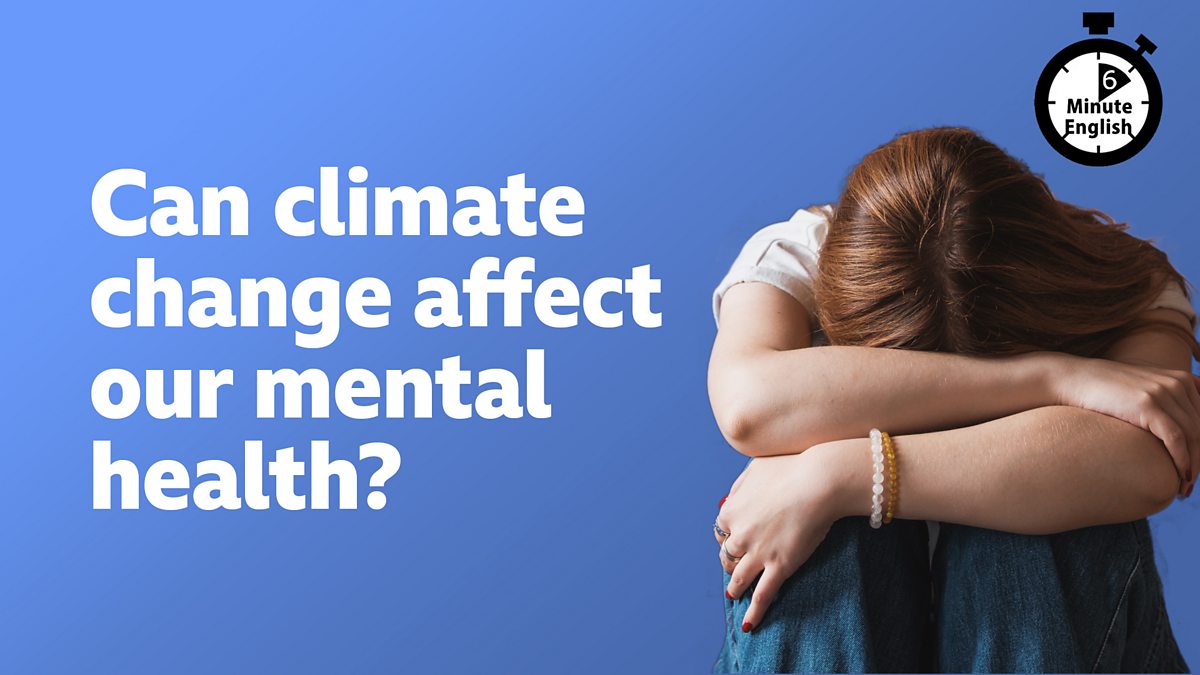Climate Anxiety & Mental Health: How a Changing Planet Impacts Our Well-being

The Growing Link Between Climate Change and Mental Health
The headlines are relentless: extreme weather events, rising sea levels, and devastating ecological changes. While the physical impacts of climate change are well-documented, a less discussed but equally critical consequence is the growing toll on our mental health. From direct experiences of natural disasters to the pervasive anxiety about the future, climate change is impacting individuals and communities worldwide.
Understanding Climate Trauma: Beyond the Immediate Disaster
Those living in areas frequently impacted by natural disasters – hurricanes, floods, wildfires, droughts – are particularly vulnerable. What's often referred to as “climate trauma” goes beyond the immediate shock and devastation. It represents the profound and lasting emotional effects of these events, impacting individuals and entire communities for years to come. This trauma can manifest in various ways, including:
- Post-Traumatic Stress Disorder (PTSD): Reliving the event, experiencing nightmares, and exhibiting heightened anxiety.
- Depression and Anxiety: A persistent sense of sadness, hopelessness, and worry about the future.
- Grief and Loss: Mourning the loss of homes, livelihoods, and even loved ones.
- Displacement and Social Disruption: The stress of relocating and rebuilding lives in unfamiliar environments.
It’s important to understand that climate trauma isn't limited to those directly affected by disasters. The constant exposure to climate change news and the awareness of its long-term implications can also trigger significant emotional distress.
Climate Anxiety: A Widespread Concern
“Climate anxiety,” also known as “eco-anxiety,” is a relatively new term describing the chronic fear of environmental doom. It's characterized by feelings of worry, helplessness, and dread about the future of the planet. While it can be a motivator for action, unchecked climate anxiety can lead to paralyzing fear and inaction. Young people, who will inherit the consequences of climate change, are particularly susceptible to this type of anxiety.
Who is Most Vulnerable?
While climate change affects everyone, certain populations are disproportionately vulnerable to its mental health impacts:
- Children and Adolescents: Their developing brains and heightened sensitivity make them particularly susceptible to anxiety and fear.
- Indigenous Communities: Often deeply connected to the land and reliant on natural resources, they face unique cultural and economic losses.
- Low-Income Communities: Often live in areas more vulnerable to climate impacts and have fewer resources to cope.
- People with Pre-existing Mental Health Conditions: Climate change can exacerbate existing vulnerabilities.
What Can We Do? Coping Strategies and Solutions
Addressing the mental health impacts of climate change requires a multi-faceted approach:
- Acknowledge and Validate Feelings: Recognize that experiencing anxiety and grief about climate change is normal and valid.
- Limit Exposure to Negative News: While staying informed is important, constant exposure to distressing news can be overwhelming.
- Take Action: Engaging in climate activism, advocating for policy changes, or making sustainable lifestyle choices can empower individuals and reduce feelings of helplessness.
- Connect with Others: Join climate action groups or support networks to share experiences and build community.
- Seek Professional Help: Therapists and counselors can provide support and coping strategies for managing climate anxiety and trauma.
Ultimately, addressing the mental health crisis exacerbated by climate change requires a collective effort – individual action, community support, and systemic change to mitigate the causes of climate change itself. By prioritizing both planetary health and human well-being, we can build a more resilient and sustainable future for all.






